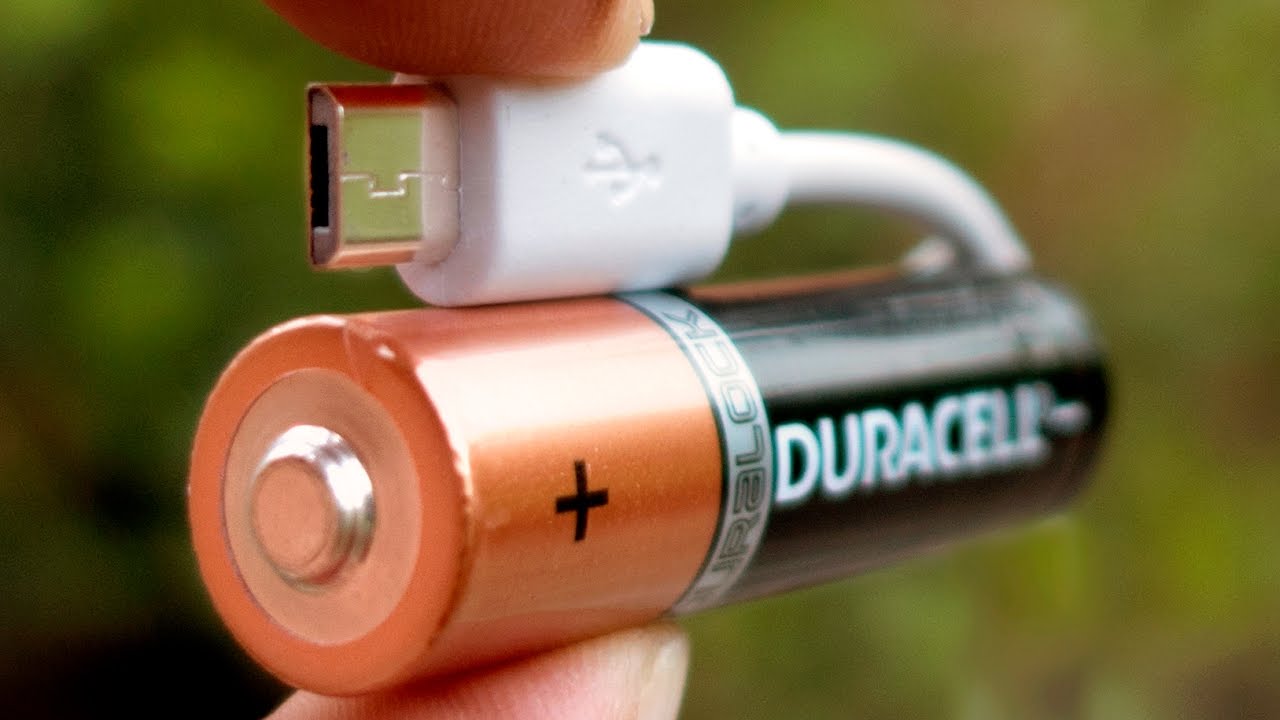Lithium-ion 18650 batteries have become incredibly popular over the last few years. Thanks to their high capacity and energy density, 18650s are used to power everything from laptops and power tools to electric vehicles.
But with their rise in popularity comes more questions from consumers. One of the most common is:
Can you charge 18650 batteries with usb?
As a professional 18650 battery manufacturer, I’ll answer that question in detail below. But first, let’s go over the basics of 18650 batteries.

What Is an 18650 Battery?
18650 isn’t some funky model number or code name. It simply refers to the size of the lithium-ion cell:
- 18mm diameter
- 65mm tall
So any cylindrical lithium-ion battery that shares those dimensions is considered an 18650 cell.
In terms of performance, 18650s have a nominal voltage between 3.6V and 3.7V. And capacities generally range from 2,000mAh all the way up to 3,500mAh.
This combination of compact size, high voltage, and energy density is why 18650s have become the battery of choice for so many devices. From laptop battery packs to high-powered flashlights, 18650s can handle applications that demand lots of portable power.
Now let’s get into the question at hand: using USB to charge 18650 batteries.
Can You Charge an 18650 Battery Over USB?
The short answer? Yes, you can charge an 18650 lithium-ion battery through a USB port.
However, there are a few important caveats to going this route. Below, I’ll break down the pros, cons, options, and best practices for charging 18650 batteries with USB.
The Pros of USB Charging
USB charging offers a few potential benefits:
- Convenience: Nearly all modern gadgets — from phones to battery packs to laptops — charge over USB. So being able to top up your removable 18650s using existing cables and chargers is handy.
- Availability: You can find a USB port just about anywhere, from power banks to computers to wall adapters. So if you need to give your battery a quick boost, a USB connection is often within reach.
- Safety: Unlike makeshift approaches like connecting batteries to 9v adapters, USB charging was designed specifically for lithium-ion batteries. So as long as best practices are followed (more below), USB charging does not compromise the safety of 18650 cells.
So USB can indeed be a viable way to charge 18650 batteries. But there are some downsides to keep in mind.
The Cons of USB Charging
While convenient, charging 18650 batteries through USB has a few limitations:
- Slow charge rates: USB ports max out at 2.1A (for USB-C) or 2.4A (for Qualcomm Quick Charge). That’s sufficient for smaller lithium-ion cells. But 18650 battery capacities call for chargers capable of 3A or higher for optimal charge times. So USB charging will be slower.
- Power limitations: The total wattage that can be drawn from a USB port tops out between 12-15 watts. Again, slower charging compared to dedicated 18650 chargers.
- No overcharge protection: Dedicated 18650 chargers cut power once a battery reaches 4.2V to prevent damage from overcharging. USB ports supply continuous power, so overcharging is possible if batteries aren’t closely monitored.
The limited power delivery and lack of overcharge protection remain the two biggest pitfalls of charging 18650 batteries via USB.
Fortunately, recent tech developments help mitigate those potential issues. Next I’ll explain the safest options for USB charging 18650 batteries.
Safest Ways To Charge 18650 Batteries Over USB
While USB charging comes with caveats, following a few best practices makes the method reasonably safe:
1. Use Protected 18650 Batteries
Protected 18650 batteries have an extra circuit board attached to the negative terminal. This protective PCB shuts down power to prevent over-discharge and overcharge damage.
So if you plan to charge via USB, using protected cells adds a critical safeguard against overcharging. Just be sure to buy quality protected batteries from reputable brands like KeepPower, Olight or Vapcell. Cheap cells may have protections that fail to trip when needed.
2. Manually Monitor charge
When charging 18650s through USB, manually monitor battery voltage to prevent potential overcharge. Simply use a voltmeter to periodically check if batteries are approaching 4.2V. Once nearing full charge, remove batteries from the USB source.
While a bit tedious, monitoring battery voltage ensures safe USB charging. And for infrequent charging, it’s an easy safeguard. For more frequent charging, the next option is more convenient.
3. Use Smart Chargers
Recently, purpose-built USB 18650 smart chargers have emerged. These smart chargers have the necessary protections built in to safely charge 18650s via USB.
For example, this model from Xtar automatically stops charging once batteries reach 4.2V.
Other smart USB chargers for 18650 batteries include:
- Nitecore F1
- Olight UC Magnetic USB Charger
- Vapcell S4 Plus
These smart chargers are safe, convenient options for USB charging. Just be sure to buy from a reputable brand. Quality varies widely with USB chargers.
So those are the three best practices I recommend when charging 18650 batteries over USB:
- Use protected cells
- Manually monitor voltage
- Employ smart chargers
Following those simple guidelines will make USB charging nearly as safe as dedicated 18650 battery chargers.
Just remember: slower charge times and lower power delivery remain inherent USB limitations. So while periodically using USB to top up 18650s is fine, I don’t recommend it as a daily charging solution.
Wrapping Up
Lithium-ion 18650 batteries offer tremendous performance potential in a compact cylindrical package. And the ability to charge them via ubiquitous USB ports adds to their versatility and convenience.
So can you charge 18650 batteries with USB? Absolutely. Just be sure to take the proper precautions.
I hope this post shed some light on safely charging 18650 lithium batteries over USB. But if you have any other questions, let me know in the comments section below!










